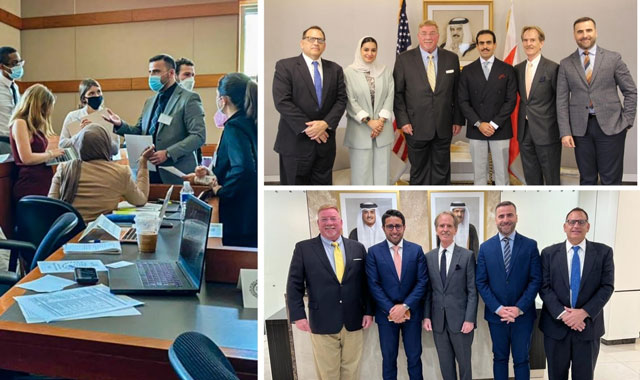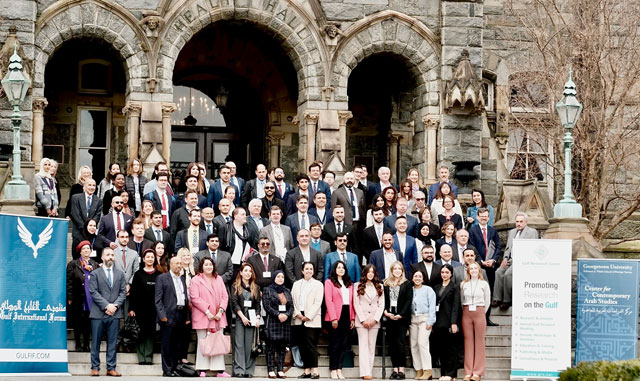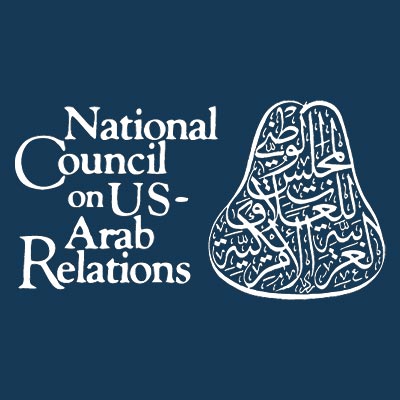In the world of academia and foreign policy analysis, Dr. Fadi Hilani stands as a bridge between cultures, bringing together his expertise in linguistics, Middle East policy, and U.S. relations with the Arab countries. Appointed in 2023 as the Senior Academic and Research Fellow-in-Residence at the National Council on U.S.-Arab Relations, Dr. Hilani continues to delve into critical issues shaping the Arab Gulf region, including most recently an analysis of the growth of esports in Saudi Arabia, and rethinking strategies of defense, security, and economics.

Throughout his career, Dr. Hilani’s scholarly contributions have extended beyond the classroom. He has lent his expertise as a peer reviewer for academic journals, including Research on Language and Social Interaction and Multilingua: Journal of Cross-Cultural and Interlanguage Communication. His research interests have centered on Arabic conversation analysis, shedding light on the nuances of communication within the Arab world.
In a recent piece of analysis for the National Council, Dr. Hilani explored the burgeoning world of esports and gaming in Saudi Arabia. He dove into the rapid growth of esports in the Kingdom, highlighting its impact on youth culture, entertainment, and the broader societal landscape. As Saudi Arabia continues to invest in its gaming industry, Dr. Hilani’s insights provide valuable perspectives on the intersection of technology, culture, and economic development in the region.

This week, Dr. Hilani presented a research paper titled “Rethinking Strategies of Defense, Security, and Economy in the U.S.-Arab Gulf Foreign Policy” at the “U.S.-Gulf Policy” workshop during the 2024 Gulf Studies Symposium. The symposium, organized in partnership between the Gulf International Forum, Gulf Research Center, and Georgetown University’s Center for Contemporary Arab Studies, serves as a platform for scholars and policymakers to engage in crucial discussions about the Gulf region.
The presentation reflected Dr. Hilani’s commitment to analyzing pressing issues in U.S.-Arab Gulf relations. His multifaceted background in linguistics, policy analysis, and academia equips him with a unique perspective on the complexities of the region. As an adjunct professor at Montclair State University and the City University of New York, Dr. Hilani continues to share his expertise with the next generation of scholars.

In his role as Senior Academic and Research Fellow-in-Residence, Dr. Hilani embodies the mission of the National Council, fostering dialogue and understanding between the United States and Arab countries. His contributions not only enrich academic discourse but also inform discussions that shape diplomatic relations and regional dynamics.
Dr. Fadi Hilani’s journey from the classrooms of Aleppo University to the forefront of U.S.-Arab relations highlights the power of scholarship in building bridges across cultures. As he continues to delve into the complexities of the region, his work serves as a beacon of insight and understanding in an ever-evolving geopolitical landscape.

